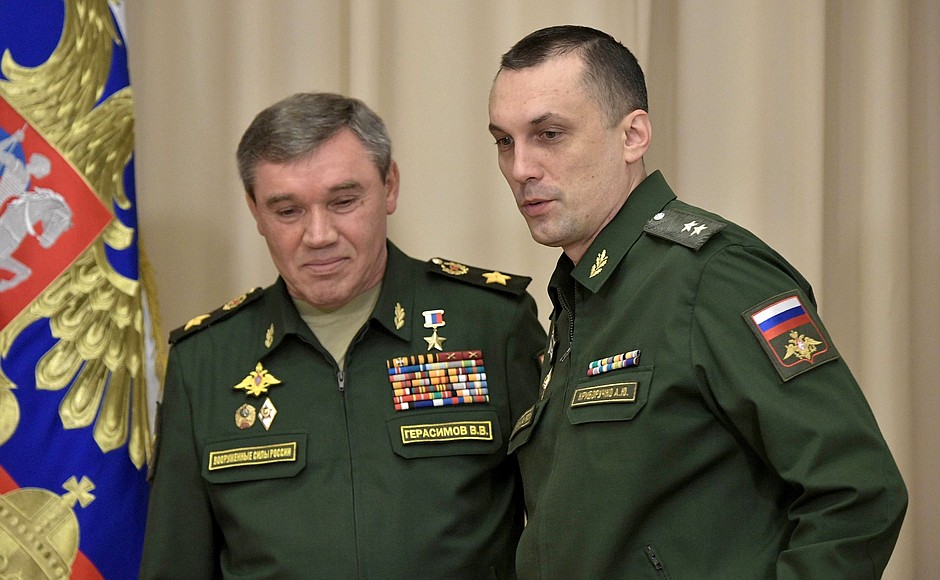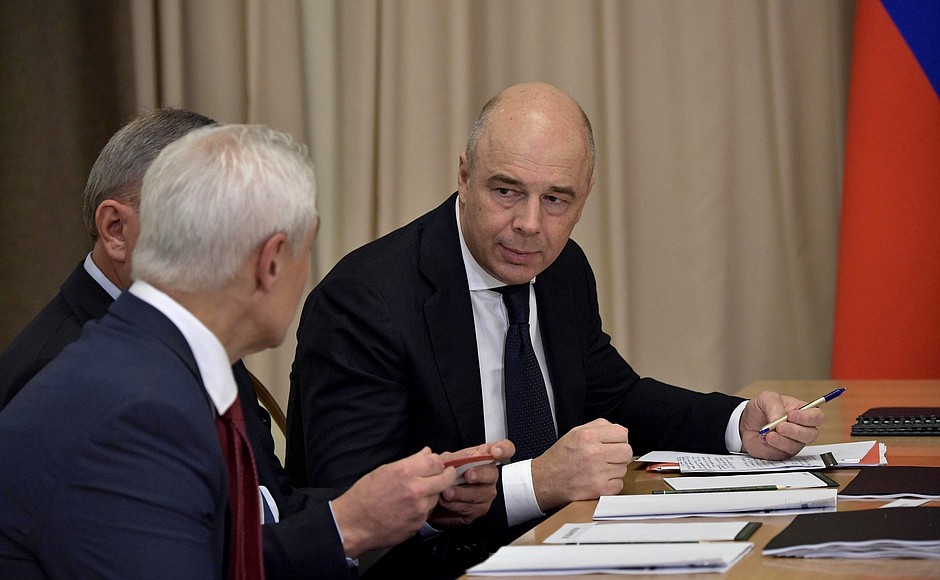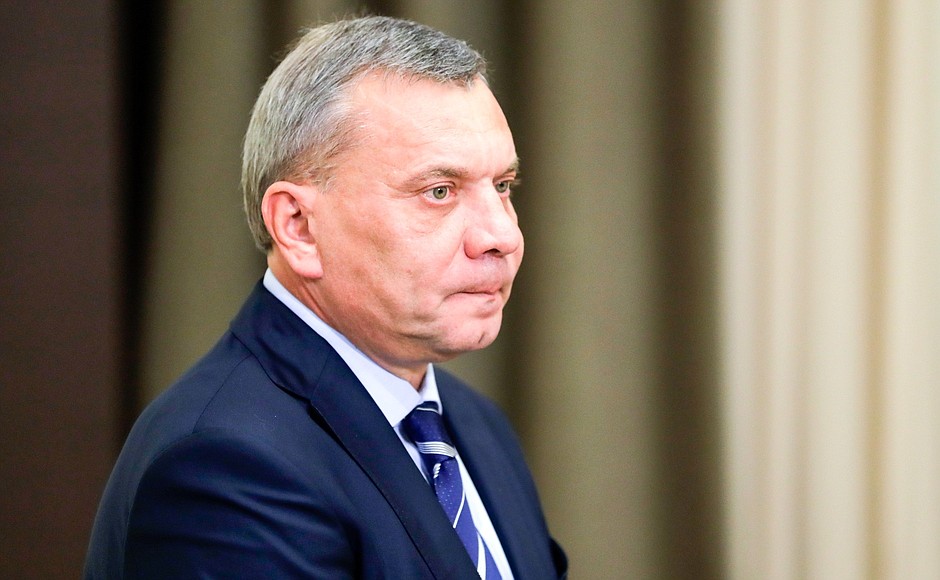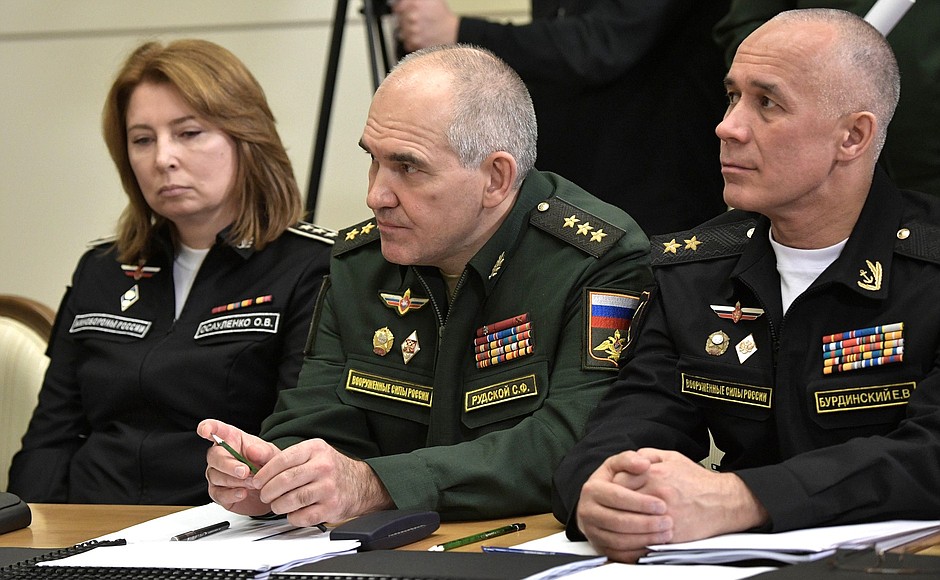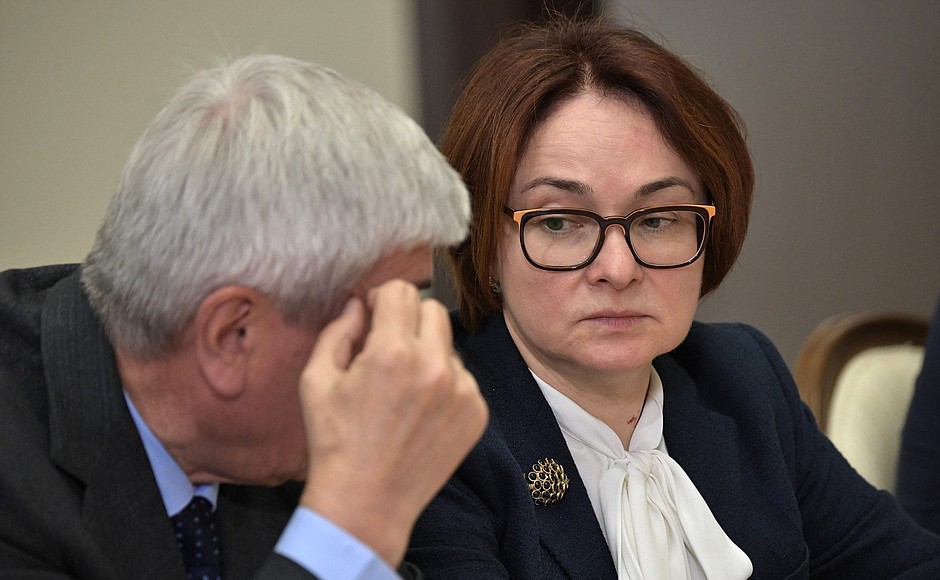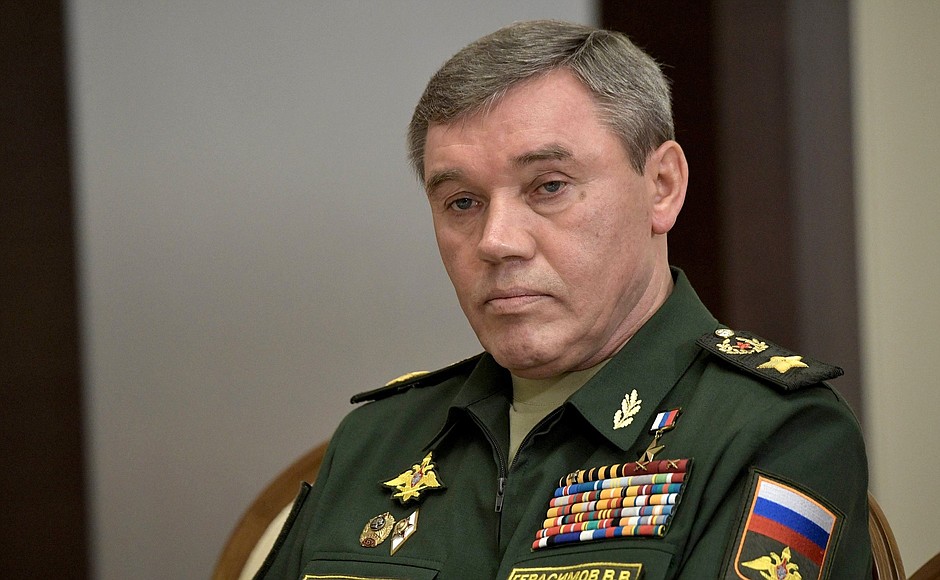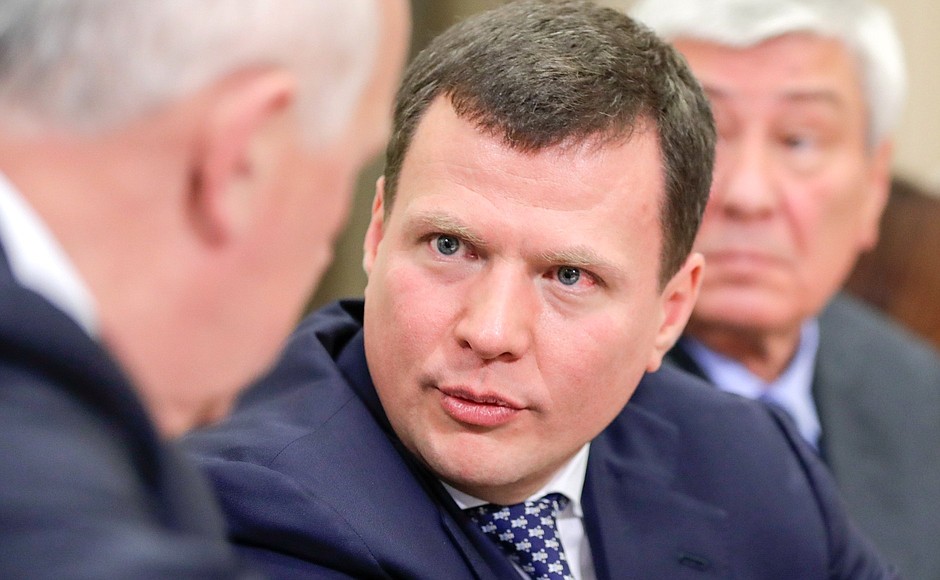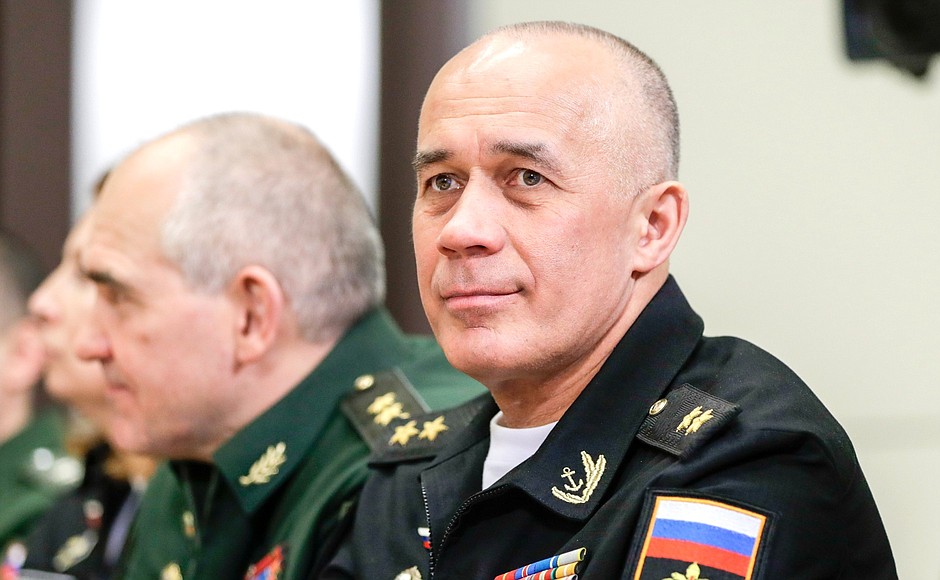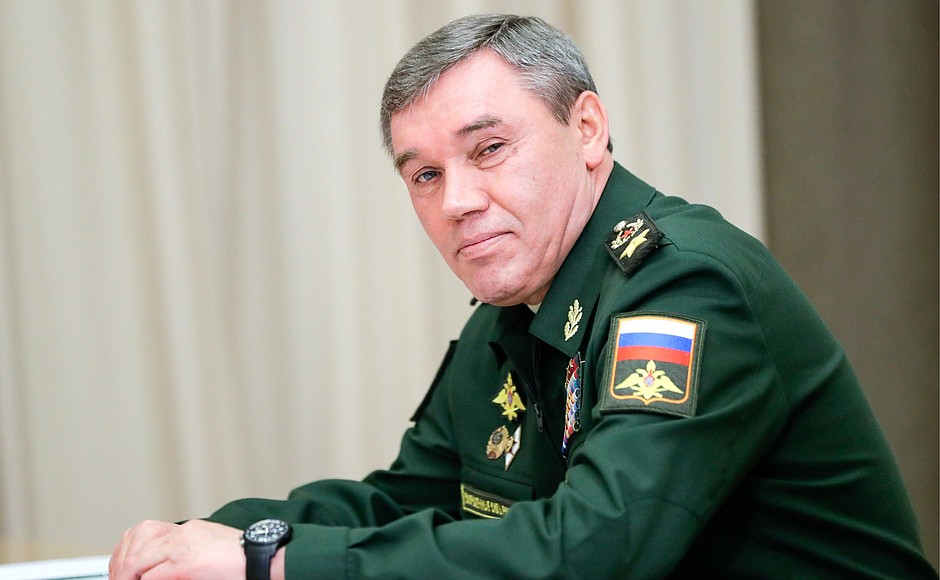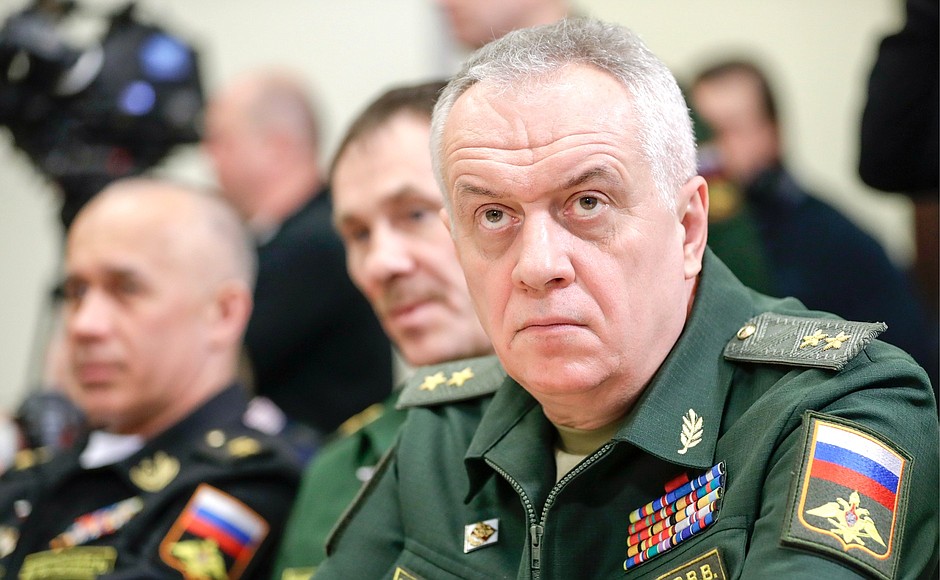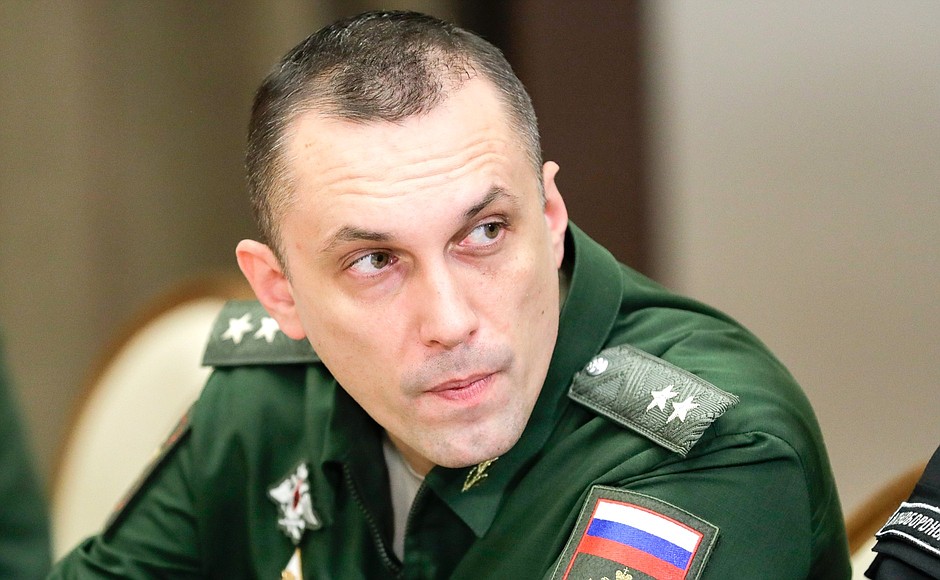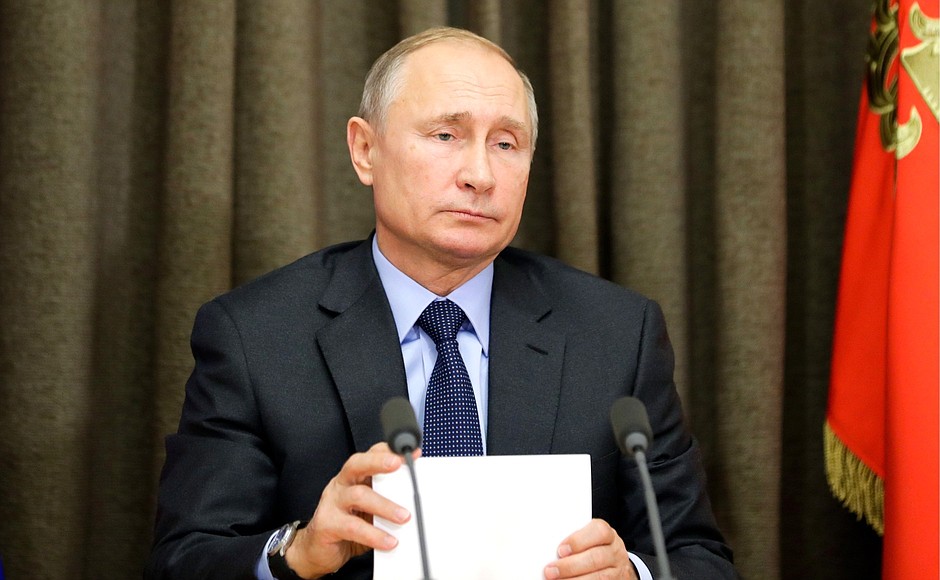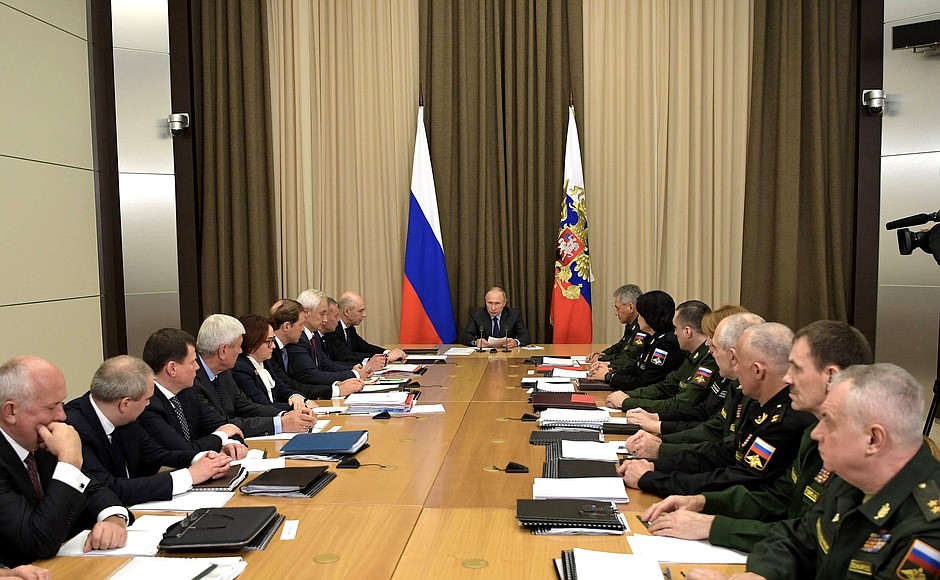President of Russia Vladimir Putin: Good afternoon, colleagues.
Today we will discuss the progress of state defence procurement.
As you know, the key benchmarks for this work are set forth in the new State Armament Programme which states that by 2021 the share of modern weapons and equipment in the Army and Navy should reach no less than 70 percent.
Such large-scale re-equipment of troops will make it possible to resolve the full range of current and future tasks facing the Armed Forces of the Russian Federation, primarily, maintaining strategic parity and reliably protecting Russia from external threats.
Considerable funds – a total of almost a trillion and a half rubles – have been allocated to the Defence Ministry this year for the development and serial production of weapons and combat equipment. Today we will analyse how efficient the work on state defence procurement by defence enterprises has been.
On the whole, the established rates for re-equipping troops with modern arms are being maintained. As before, the main focus is on the development and supply of advanced weapon systems that will determine the future of our Armed Forces for years to come.
About 2,000 basic samples of arms and combat equipment have been delivered to troops by mid- November as part of state defence procurement, including 74 aircraft and helicopters, 80 drones, four S-400 air defence missile systems, five surface warships, 250 tanks and armoured fighting vehicles.
I would like to mention that in terms of the majority of tactical characteristics Russian weapons of the latest generation are superior to their foreign counterparts, while hypersonic weapons, air defence and electronic warfare equipment, and some systems of the Ground Forces are simply unique in the world.
We must build up this serious reserve by supporting the latest developments of research institutes and design bureaus and accelerating the transition to the serial production of advanced weapons and equipment.
And, of course, we must thoroughly analyse the problems of implementing defence procurement tasks, primarily the failure of some defence industry enterprises to meet their commitments in time. We will see where this is due to systemic reasons and where it is due to lack of discipline and proper organisation of production processes.
Let us get down to work.
<…>
